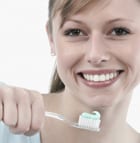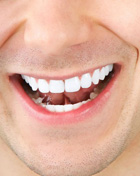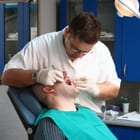 Sometimes, even after years of careful brushing, teeth can become discoloured and subject to a build up of tartar and plaque. It is not the fault of the individual, merely a process of time and the constant exposure of the oral cavity to stubborn bacteria. However, there are dental processes available in Leeds that can combat the damaging effects of time on your precious teeth.
Sometimes, even after years of careful brushing, teeth can become discoloured and subject to a build up of tartar and plaque. It is not the fault of the individual, merely a process of time and the constant exposure of the oral cavity to stubborn bacteria. However, there are dental processes available in Leeds that can combat the damaging effects of time on your precious teeth.
The first of these procedures is called Scaling. Scaling involves the removal of plaque and tartar from the surface of the teeth by your dentist, using gentle vibrations and squirts of water mist from ultrasonic equipment. A curette or scaler may then be used to remove any substances which have adhered strongly to the surface of the teeth. Scaling should not induce any pain and can be performed without the need for any anaesthetic.
Polishing is the process which follows scaling and is used to ensure the surface of the teeth is smooth enough t discourage the attachment of bacteria in future. Prophylaxis gel and fluoride gel are used in the polishing procedure to ensure the teeth are shiny and smooth, once again this should cause no pain at all and will be completed quickly.
At some point, everybody will need a scale and a polish, it is for this reason that regular appointments at your local dentist are so important. If you are attending your clinic every six months, your dentist will be able to keep any eye on the condition of your teeth and determine if and when you are in need of a scale and polish. Removing bacteria so thoroughly in this way, and preventing the future build up of plaque and tartar greatly reduces the risk of developing gum disease and tooth decay.
















